INCLUSIVE INSURANCE
Demonstrators ask county to drop SSM subsidiary after hospital ceases gender-affirming care

HORRIFIC MUNDANITY
UW’s response to recent sexual assault downplays a systemic student safety issue.
+ OPINION, PAGE 7 + NEWS, PAGE 3
How affirmative action case may impact scholarships, fees at UW
By Anna Kleiber, Gavin Escott and Gabriella Hartlaub SENIOR STAFF WRITERS AND ARTS EDITOR
The University of WisconsinMadison will continue awarding diversity, equity and inclusion (DEI) scholarships, administer race-neutral fee waivers and obtain approval for diversity questions following a June U.S. Supreme Court ruling that ended affirmative action, the Blk Pwr Coalition said in a statement Monday night.
Diversity questions in admissions materials must be approved, with applicants being encouraged to “tie their identities back to the university’s mission in admissions essays.” Current “UW-specific” diversity scholarships will be unaffected, the coalition said.
It is currently unclear who would need to approve diversity questions in admissions materials.
Outside the admissions decisions process, fee waivers for admissions materials must also be race-neutral, the coalition said. While data on race will still be collected on admissions materials, that data will not be visible to those making admissions decisions, according to the statement.
UW-Madison Media Relations and Strategic Director Kelly Tyrrell told The Daily Cardinal in a statement Tuesday evening that DEI remains a “high priority” for the university and that UW-Madison is committed to ongoing collaboration with the Blk Pwr Coalition.

“We have seen the Blk Pwr Coalition’s update from Monday night and appreciate their leadership,” Tyrrell said.
The university is ensuring admissions decisions and fee waivers already offered to students experiencing financial hardship comply with the Court’s decision and guidance from the federal Departments of Justice and Education, Tyrrell said.
The future of affirmative action programs at universities across the country was thrown into doubt in June after a U.S. Supreme Court decision found race-conscious admissions programs unconstitutional.
The decision overruled decades of precedent that protected affirmative action programs at colleges and universities across the country and left UW-Madison students questioning the ruling’s effect on campus diversity.
When the decision was released, UW-Madison said it would remove race as a factor in its admissions practices to comply with the law while stressing that diversity remained a “bedrock value.”
White House talks student priorities in campus press briefing
By Ava Menkes STATE NEWS EDITOR
White House Press Secretary Karine Jean-Pierre and Communications Director Ben LaBolt boosted the Biden Administration’s work towards higher education, climate change and mental health efforts during a press briefing with U.S. student media Tuesday.
LaBolt emphasized President Joe Biden’s focus on the student loan system and making college more affordable for students and families.
“[Biden] believes that HBCUs [are] certainly the center of academic excellence. You hear him say that all the time,” Jean-Pierre said. She highlighted that HBCUs help students receive academic freedom and “it doesn’t have to matter where you come from.”
LaBolt lauded the Biden Administration’s climate change initiatives, saying the President sees the crisis as an “existential threat to humanity and existential threat to the United States.”
As the university grapples with the Court’s decision, UW-Madison is under heavy pressure from the Republican-controlled state Legislature to cut DEI programs.
Chancellor Jennifer Mnookin maintained last week that UW-Madison will not cut the programs but will potentially expand its “umbrella” of diversity programs.
Assembly Speaker Robin Vos, R-Rochester, said in June that a staterun scholarship program for students of color would be among race-conscious state programs Republicans would seek to cut, according to the Milwaukee Journal Sentinel.
Blk Pwr Coalition seeks “selfdetermination,” will not register as student org
In their first release of the fall semester, the Blk Pwr Coalition said late Monday the Supreme Court’s decision made their organization’s work “extremely essential” and outlined how the changes would impact UW-Madison’s admissions process based on their conversations with state and UW-Madison leaders.
The Blk Pwr Coalition emerged in May after UW-Madison’s response to a viral video of a white UW-Madison student saying racial slurs and violent language caused campus-wide demonstrations.
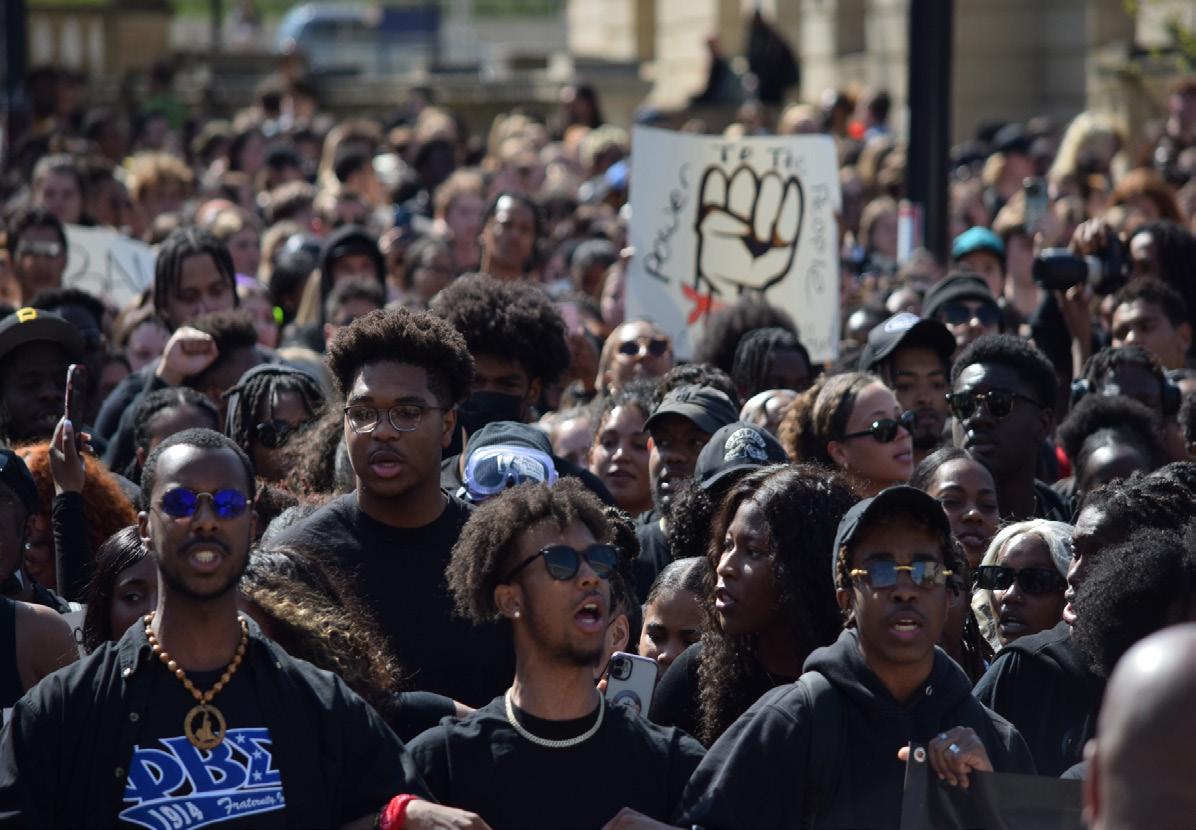
The university was widely condemned as failing to protect its students of color and for not doing more to address decades of high-profile racial bias incidents against Black students on campus, something student activists say is rooted in UW-Madison’s history of systemic racism.
Vice Chancellor for Student Affairs
Lori Reesor told The Daily Cardinal last month that UW-Madison administrators met with the Blk Pwr Coalition on multiple occasions this summer.
The coalition said in the release they held conversations with university administrators as well as local and
state officials including Milwaukee Mayor Cavalier Johnson and Rep. Shelia Stubbs, D-Madison.
Despite meeting with numerous UW-Madison leaders, including Mnookin, the group said they purposely structured their work outside the registered student organization system.
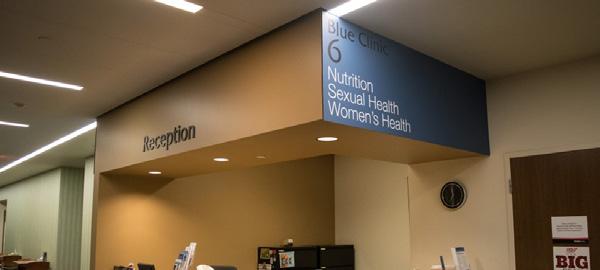
The group plans to secure “further operational structure” throughout the coming year and said they’ve already worked with collaborators to provide jobs, research positions and mentorships.
“We believe wholeheartedly in the self-determination of our community,” the coalition said Monday.
The release also addressed an ad hoc study group to survey “the Black student experience” at UW-Madison, which will meet throughout the semester before issuing a report penned for late January 2024.
“We hope that this is not another committee to study the problem,” the Blk Pwr Coalition said. “The university knows the problem. It is long overdue that Black people in and around the UW campus receive the investment, respect and accountability we deserve. We will hold the committee, its members and administration to account.”
The release outlined their intention to distribute scholarships and mutual aid to ameliorate student financial burden and said they were working with community partners, such as the Center for Black Excellence, to create a space where students, alumni and community members could connect.
The coalition said it looks forward to fighting for a bright future for the Madison Black community.
“It is our greatest hope that this organization can continue to fight for and support the Black community in and around UW-Madison for many years to come,” the statement read.
However, he noted the prolonged U.S. government shutdown would disrupt the effort to resume student loan repayments and the continuous servicing of borrowers despite the Department of Education’s ability to support its borrowers as they return to payment.
“The House really needs to get its act together,” LaBolt said. “There’s no reason for the government to be shut down. This is not something that the President or Democratic leadership support. Republicans are doing it if extreme ideological demands aren’t met, and we’ll continue to keep the pressure.”
Pell Grants provide needbased financial aid that students do not have to pay back. Through this, the Biden administration has canceled $117 billion in student loan debt for more than 3 million borrowers, according to LaBolt.
LaBolt said one of Biden’s latest actions for college affordability is the Saving on a Valuable Education (SAVE) plan. An estimated 4 million borrowers are enrolled in the plan with payments depending on income and family size rather than their loan balance, according to LaBolt. Any remaining balance is forgiven.
“We know that many young people are worried about student loans as a barrier to opportunity. The President’s hope is that all of these plans and all of these actions reassure students and reassure alumni that the President has your back and he won’t stop fighting to bring the promise of affordability to more students and families,” LaBolt said.
Jean-Pierre also spoke on the U.S. Supreme Court’s verdict to overturn affirmative action, branding it a “disappointing decision.”
Biden invested $7 billion in historically Black colleges and universities (HBCUs) to provide opportunity for Black students and advocate for academic achievement, according to Jean-Pierre.
Biden signed into law the Inflation Reduction Act, the largest investment in climate history, according to LaBolt. It will enable the U.S. to cut emissions by half in 2030 and double the amount of solar, wind and batteries the country employs over the next 10 years.
Wind and solar composed 17% of the U.S.’ utility-scale capacity in 2021 but produced only 12% of our electricity, according to the U.S. Energy Information Administration.
Moreover, the Biden Administration has protected over 21 million acres of public lands and waters, according to LaBolt. And the President’s recent launch of the American Climate Corps, a new job training program, will create 20,000 jobs for individuals to fight the climate crisis.
The goal of the corps is to restore land, bolster community resilience, deploy clean energy and implement energy efficient technologies, LaBolt said.
Lastly, LaBolt endorsed Biden’s commitment to addressing youth mental health.
The President enacted the Bipartisan Safer Communities Act, investing $1 billion over the next five years to increase access to mental health services for young individuals.
States have been using this money to hire and train over 14,000 mental health professionals to work in schools starting this fall, according to LaBolt.
Over two million young individuals have gained health insurance since the President took office. However, LaBolt said the long wait times and limited providers to choose from “isn’t fair.”
“And that’s why the administration has proposed a regulation that would strengthen requirements for insurers to provide access to mental health care in the same way that they do for physical health,” he added.
More initiatives on college affordability and climate change will be unveiled in the coming weeks, the White House said Monday.
“…the great state University of Wisconsin should ever encourage that continual and fearless sifting and winnowing by which alone the truth can be found.”
University of Wisconsin-Madison Since 1892 dailycardinal.com Thursday, September 28, 2023 l
MEGHAN SPIRITO/THE DAILY CARDINAL
and subscription sales.
The Daily Cardinal is published weekdays and distributed at the University of WisconsinMadison and its surrounding community with a circulation of 10,000.
Capital Newspapers, Inc. is the Cardinal’s printer. The Daily Cardinal is printed on recycled paper. The Cardinal is a member of the Associated Collegiate Press and the Wisconsin Newspaper Association.
All copy, photographs and graphics appearing in The Daily Cardinal are the sole property of the Cardinal and may not be reproduced without written permission of the editor in chief.
The Daily Cardinal accepts advertising representing a wide range of views. This acceptance does not imply agreement with the views expressed. The Cardinal reserves the right to reject advertisements judged offensive based on imagery, wording or both.

Starship robots quietly disappeared, but they’ll be back ‘soon’
By Sarah Parker STAFF WRITER
As the summer came to a close and students and staff returned to campus, one thing remained missing: the Starship Robots. This year, the infamous robots once highlighted in campus tours and beloved by many students are nowhere to be seen.
Skype co-founders Ahti Heinla and Janus Friis kickstarted Starship Technologies and created their first robot prototype in 2014, according to the Starship website.
In January 2019, the Starships made their campus debut at George Mason University. Many universities followed, including Northern Arizona, Purdue and eventually the University of WisconsinMadison in October 2019. As of August 2023, 50 campuses are equipped with Starship robots.
Despite the UW Housing website and the Starship Technologies website stating that UW-Madison has access to a fleet of Starship robots, they remain nowhere to be found.
“Closed for the summer break. We’ll be back for the fall,” the Starship app reads.
Now, with fall classes underway, the robots are still gone. Where are they?
“We expect the delivery service to return very soon.”
Starship Technologies appears to be working on the same thing.
The company posted a job listing for a “Seasonal Campus Fleet Attendant” at UW-Madison in mid-September. According to the listing, a fleet attendant’s tasks involve daily fleet maintenance, on-the-fly repairs and teamwork to ensure smooth deliveries.
The Starship robots averaged around 30-40 deliveries per day, according to UW Housing. They also noted that there are a total of 10 robots, despite the Starship Technologies website saying UW-Madison has access to 30.
UW Housing explained in an email that the discrepancy cannot be attributed to robots being lost, stolen or destroyed, as they have had no record of these occurrences.
“The delivery robots are owned by Starship Technologies and are

provided to us at no cost. They handle maintenance and support for the robots. The only costs of the program to University Housing are a small fee per order to Starship and the wages for student employees who help manage the deliveries,” UW Housing said.
In the past few years, many students took to social media to express their delight at seeing the robots around campus.
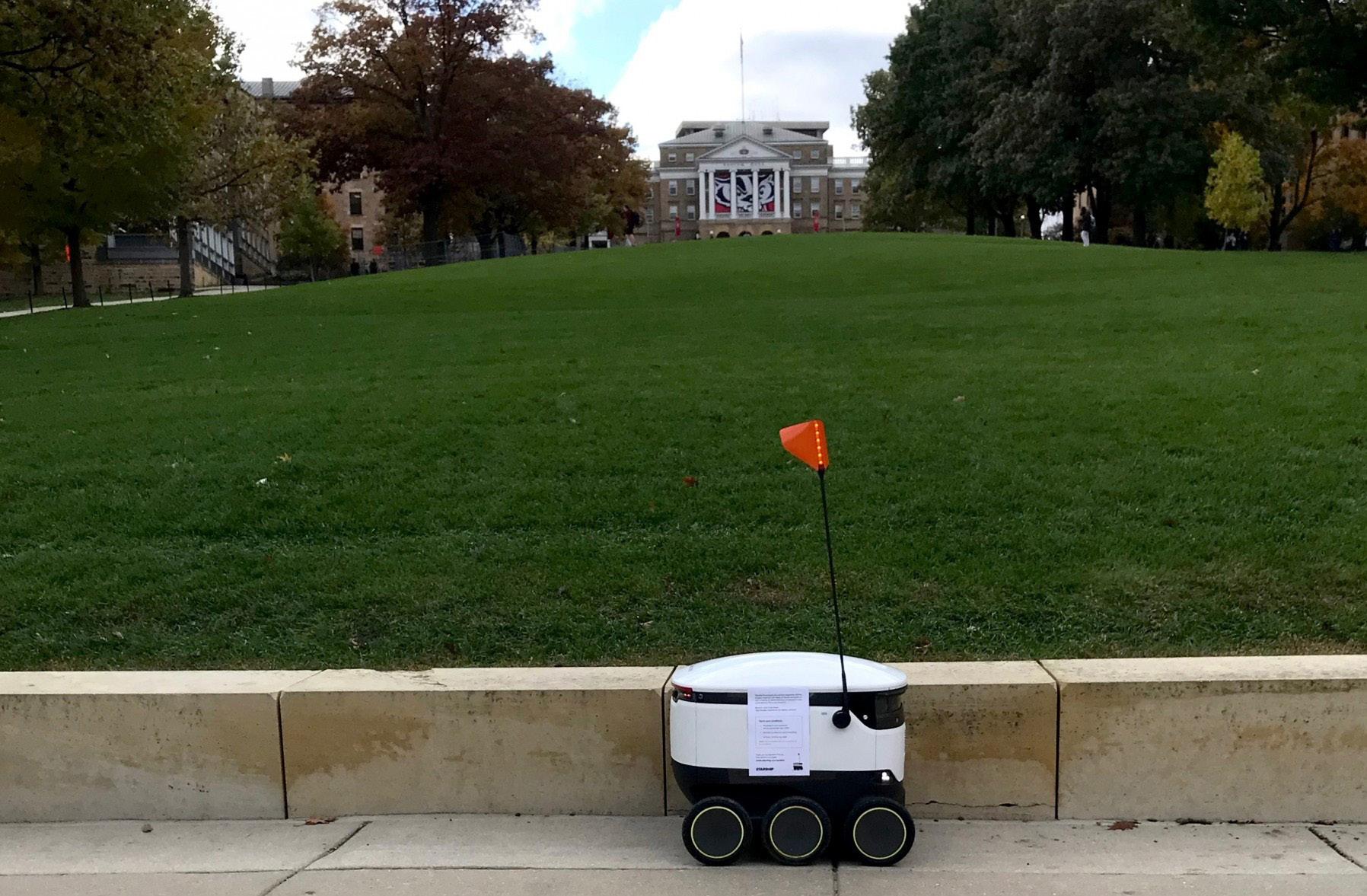
One user captioned their TikTok of a Starship bringing their food with, “I giggle every time I see these things on campus!” Another caption read, “The starships have my heart.” Another user even made a video showcasing a Starship Halloween costume equipped with lights and a flag. Many videos showed students rushing to help robots stuck in snow banks.
Despite the positive social media response, not everyone shares this sentiment. One former Four Lakes dining hall employee shared her disdain for the robots.
“I worked with them last year. They sucked,” the employee said. “You could order something that was in stock at one dining hall but not the one you were order-
ing from. It gets hectic [because] the people who are working the starships are working the dining hall, too.”
“I don’t even know what that is,” a Rheta’s Market employee said when asked about the Starship robots.
The presence of the robots — or lack thereof — has not made much of a difference to some students.
“I didn’t even notice they weren’t on campus, to be honest,” UW Madison senior Kenna Coan said.
Coan admitted that she had only used the Starships once. Though she thought they worked well, she considered the robots to be unnecessary.
“It was a 30- to 45-minute wait for food that was a five-minute walk away, so it was never really worth it to me,” Coan said. “[Students] thought they were cute. I don’t know about useful.”
Despite calling the robots unnecessary, Coan acknowledged that other students found them useful.
“They were good during COVID, and the people that liked them really liked them, you know?” Coan said.
UW System statistics show modest UW-Madison enrollment increase
By Maddy Scharrer STAFF WRITER
As the summer came to a The University of Wisconsin System released its 10-day census enrollment estimates early last week, which show a small increase in UW-Madison’s enrollment.
The estimated statistics are based on day-one enrollment and predict enrollment increases at UW-Madison that would raise total UW System enrollment, according to a UW System report.
Enrollment has become a key fiscal issue for UW System schools — some of which have instituted layoffs and furloughs — as they are grappling with a $32 million cut from
the state Legislature’s budgetwriting committee.
The UW System conducts a formal student census each year on the tenth day of classes, and those results will be released later this week, according to University Communications employee Doug Erickson.
UW Madison is one of five UW System schools predicted to have increased enrollment, not including branch campuses. An estimated 50,255 students are enrolled at UW-Madison for fall 2023, a 1.3% increase from Fall 2022’s 49,587, according to a UW System report.
“I think [students and parents] appreciate our affordability and
our accessibility, and [our universities] will change the lives of those students who will become graduates and do great things both in the state of Wisconsin and beyond,” UW System President Jay Rothman told reporters at a Thursday briefing, according to the Milwaukee Journal Sentinel.
As a whole, the estimate shows the total fall 2023 enrollment increasing by 0.3% across the UW System, with 161,322 students enrolled. However, out of the 13 main campuses, eight are expected to go down in enrollment.
When UW-Madison’s statistics are excluded, the UW System total enrollment drops to a 0.1%
decrease in enrollment.
UW-Whitewater is predicted to have the highest enrollment increase at 3.4% while UW-Stout’s enrollment is expected to have the greatest decrease at 3.5%. UW System branch campuses are also included in the data set, and their enrollment is expected to go down from 5,075 to 4,803.
The estimates precede the official 10-day student census, which was conducted on Tuesday, September 19. Officials are analyzing the official census data to present in a fall enrollment press release, Erickson said. The press release is set to be released on Thursday.
2 Thursday, September 28, 2023 news
Corrections or clarifications? Call The Daily Cardinal office at 608-262-8000 or send an email to edit@dailycardinal.com. For the record l An independent student newspaper, serving the University of Wisconsin-Madison community since 1892 Volume 133, Issue 7 2142 Vilas Communication Hall 821 University Avenue Madison, Wis., 53706-1497 (608) 262-8000 News and Editorial edit@dailycardinal.com News Team News Manager Ella Gorodetzky Campus Editor Liam Beran College Editor Cormac LaLiberte City Editor Francesca Pica State Editor Ava Menkes Associate News Editor Jasper Bernstein Features Editor Ellie Bourdo Opinion Editors Graham Brown • Charlotte Relac Arts Editors Noah Fellinger • Gabriella Hartlaub Sports Editors Maddie Sacks • Seth Kruger Special Pages Editor Annika Bereny Photo Editor Lauren Aguila • Meghan Spirito Graphics Editors Henry Moore • Zoe Kukla Science Editor Madelyn Anderson Life & Style Editors Hina Suzuki • Erin Mercuri Podcast Director Honor Durham Copy Chiefs Noe Goldhaber • Maddie Gamburg Copy Editors Isabellaa Barajas • Jackson Wyatt Social Media Manager Rachel Schultz Business and Advertising business@dailycardinal.com Business Manager Emily Chin Advertising Manager Samuel Mayo Marketing Director Claire Taylor The Daily Cardinal is a nonprofit organization run by its staff members and elected editors. It receives no funds from the university. Operating revenue is generated from advertising
Complaints: News and editorial complaints should be presented to the editor in chief. Business and advertising complaints should be presented to the business manager. Letters Policy: Letters must be word processed and must include contact information. No anonymous letters will be printed. All letters to the editor will be printed at the discretion of The Daily Cardinal. Letters may be sent to opinion@ dailycardinal.com.
Editorial Board Graham Brown • Tyler Katzenberger • Em-J Krigsman • Charlotte Relac • Priyanka Vasavan • Drake White-Bergey • Ethan Wollins Board of Directors Scott Girard, President • Ishita Chakraborty • Don Miner • Nancy Sandy • Phil Hands • Nathan Kalmoe • Josh Klemons • Barbara Arnold • Jennifer Sereno Editor-in-Chief Drake White-Bergey Managing Editor Tyler Katzenberger dailycardinal.com
© 2023, The Daily Cardinal Media Corporation ISSN 0011-5398
ZOE KUKLA/THE DAILY CARDINAL KALLI
ANDERSON/THE DAILY CARDINAL
ASM Sustainability targets ‘social sustainability’ amid climate crisis
By Mary Bosch STAFF WRITER
As the climate crisis escalates, the Associated Students of Madison (ASM) Sustainability Committee and the University of WisconsinMadison Office of Sustainability seek increased student input for this upcoming school year.
ASM Sustainability’s primary goal this year is to “empower students' sustainability organizations,” said Anna Silverman, one of the committee’s co-coordinators. “We want to promote social sustainability.”
Record-breaking heat, unsafe air quality and stretched-thin energy grids were at the center of Wisconsin sustainability concerns this summer. After working on fossil fuel divestment for the past two years, ASM Sustainability is focusing on “tangible campaigns,” Silverman said.
Based on student feedback, they’re moving toward projects where students can see the impact of their activism within a year or less.
Upcoming campaigns include working with the Food Recovery Network to end food insecurity and increasing microwave accessibility in all campus buildings. They’re also working with environmental group Re:wild to make UW-Madison a pesticide-free campus.
Another major sustainability issue on campus is the continued development of the West Campus
District Plan (WCDP), a sweeping 30-year project to reimagine and redevelop a research-focused campus area that encompasses numerous laboratories and the University Hospital.
WCDP planners increased communication about the project’s sustainability with nonprofit climate organization 350 Wisconsin following environmental concerns from student and community activists, said Winston Thompson, ASM Sustainability logistics coordinator and former 350 Wisconsin intern.
“Our role has shifted from more of an advocate standpoint to [a] more collaborative [one],” Thompson said.
WCDP planners held a meeting with representatives from the Office of Sustainability and Wisconsin 350 in early September to discuss continuing conversations on the subject.
Paul Seitz, UW-Madison director of strategic initiatives for financial administration and a member of the WCDP planning team, told Thompson he wanted student engagement, but they disagreed on what it would look like.
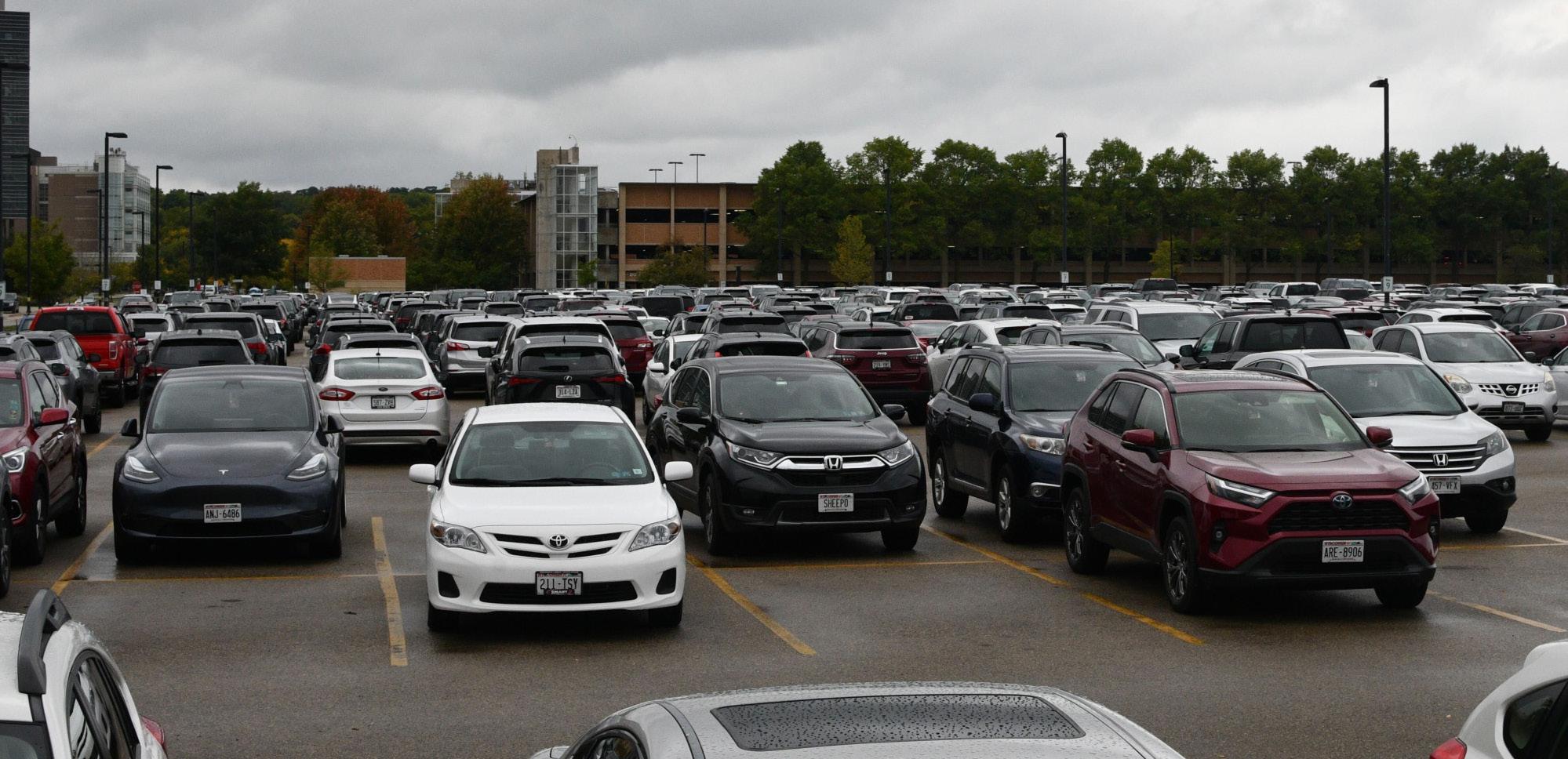
WCDP’s committee wanted student climate leaders to advocate for the student body in a smaller setting, Thompson said.
Christina Treacy, ASM Sustainability chair, preferred student advocacy to take center stage at a larger public event, like a town hall.
“I wouldn’t feel comfortable speaking on something that I know a lot of students have a lot more opinions and knowledge on,” Treacy said.
The WCDP will continue to hear more feedback in many upcoming events. A student town hall hosted by ASM Sustainability and the Office of Sustainability is in the works, and there will be a session where environmental nonprofits and other city and state environmental groups brainstorm high-level goals for the WCDP team.
The Office of Sustainability wasn’t immediately available for interview but said in a press release they plan to minimize environ-
mental impacts from construction. Demolition will be determined “as this planning process moves forward,” the office added.
Thompson said communication from university parties working on the WCDP has been spotty. When he went to one public town hall on the plan, he said there was “a lot of deflecting when answering questions that arose around sustainability and affordable housing.”
"They definitely do need to work on student engagement and being able to answer the question,” Thompson added.
The project’s proposal date has been pushed back several times,
initially from the end of summer to October and now to December. While Thompson said upcoming meetings and project presentation delays show work from WCDP on improving sustainability within their project, he felt the outcome will only be seen in the infrastructure.
“If they didn't want any of this, then they would have already presented back to the Board of Regents in summer,” Thompson said. “I do really believe that having these conversations, providing technical information and plenty of advocacy and showing them that people are watching and care will make a difference.”
Protesters push Dane County to drop SSM Health subsidiary as county healthcare provider
By Hannah Angsten STAFF WRITER
Members of the Trans Resistance Action Committee (TRAC) gathered Saturday at the state Capitol to urge Dane County to terminate its insurance contract with a subsidiary of SSM Health after they stopped providing gender-affirming surgeries over the summer.
The Dean Health Plan by Medica has insured the county’s 3,000 employees for the past four years. While gender-affirming care is clearly stated in their contract with the county, SSM Health has ceased administering gender affirming surgeries at their Aesthetic Center in Middleton.
SSM Health is a Catholic, not-for-profit health system whose decision follows months of increased pressure from the Catholic Church to stop Catholic health care providers from administering gender-affirming care such as surgery, hormone therapy or puberty blockers.
In response to SSM Health’s decision, TRAC, a newly formed grassroots community organization that advocates for trans, nonbinary, and gender nonconforming people’s rights in the Madison area, took to the Capitol steps Saturday to call on the county to drop SSM Health as a provider.
“Obviously [SSM’s decision] is seen as a blatant attack on the lives of not only the trans county workers of Dane County, but also the trans community as a whole.
So, we’re out here trying to raise awareness and urge Dane County to terminate their contract,” said TRAC member Cae Dallman.
Dallman also referenced the county’s recent decision to declare Dane County an official transgender sanctuary, urging them to support this resolution with real action.
“We’d really like them to put their money where their mouth is in that regard and show us that [it] wasn’t just words on paper,” Dallman said.
Logan Bitz, another TRAC member, said SSM’s decision reflects larger issues facing trans
communities everywhere.
“I think it’s just really indicative of the times right now that are extremely hostile towards trans people,” Bitz said. “And we know it’s just about trans people because the same procedures are still offered to cisgender people at the Aesthetic Center. You can get a breast augmentation as a cis woman, you can get a vasectomy… it’s just hypocritical.”
Kim Sveum, a spokesperson for SSM Health, told The Daily Cardinal in a statement that the health system “welcomes and respects all people who come to us for care, including our transgender
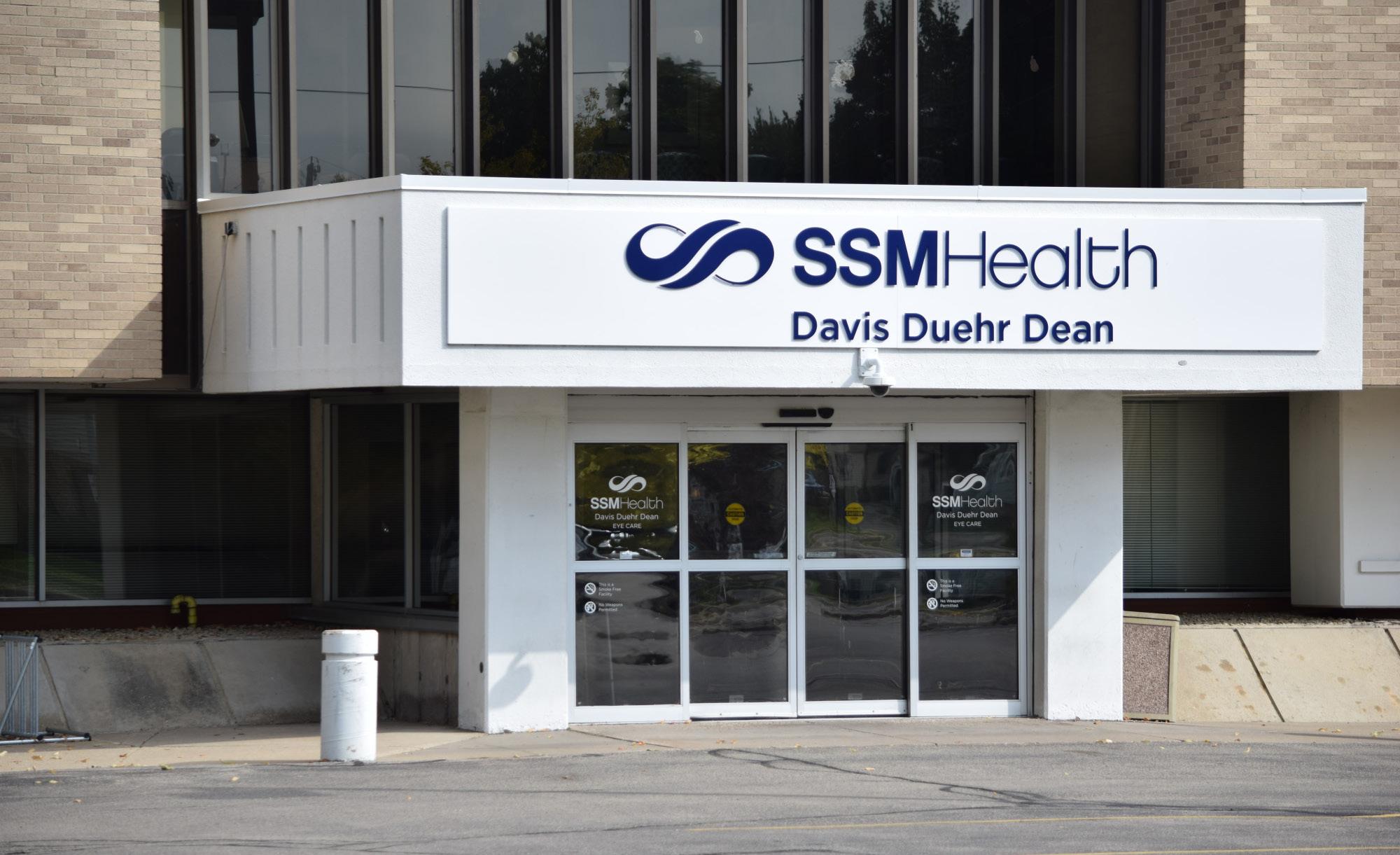
patients,” though SSM did not say why they decided to stop offering gender-affirming surgeries.
“We remain committed to honoring the diverse individual needs of every person we work with and serve – and have a more than 150year history of providing highquality, compassionate care to all,” Sveum said.
Dane County searches for different providers
Despite SSM’s decision to stop providing gender-affirming surgeries, Dean Health spokesperson Scott Culver said the health plan will continue to support LGBTQ+ employees.
“Dean Health Plan remains committed to supporting the health care needs of the communities we serve, including our LGBTQ+ members,” Culver told The Daily Cardinal.
Although the county’s contract with Dean Health includes other providers that continue to offer gender-affirming services, SSM’s end to these procedures at the Aesthetic Center means that many patients won’t have access to the health care they need until the county finds a new provider, according to Bitz.
Dane County Executive Joe Parisi said the county received no advanced notice of SSM’s decision.
“When we learned of their decision, we immediately contacted our insurer,” Parisi said. “DeanCare informed us that gender-affirming services would still be covered under our policies but that SSM would no longer be providing that service themselves.”
The county’s current contract expires next year, at which point the county will choose from a number of bids they are currently soliciting from new providers. Ensuring that providers offer gender-affirming care for county employees is a top priority, according to Parisi.
“As we did the last time we issued a request for bids, we will require any policy to include gender-affirming surgery and services,” he said. “Dane County is steadfastly in support of our LGBTQ+ employees and their families.”
news
dailycardinal.com Thursday, September 28, 2023 l 3
MARY BOSCH/THE DAILY CARDINAL
MEGHAN SPIRITO/THE DAILY CARDINAL
The haunting history of Madison’s Sanitarium Hill
ParanormalinvestigatorsflockedtotheoldTuberculosissanatorium,settingupghost-huntingtechnologyinsearchofsomethingotherworldly.
By Jasper Bernstein ASSOCIATE NEWS EDITOR
Nestled among the picturesque landscapes and historical landmarks in the heart of Madison is Sanitarium Hill, the neighborhood’s own oddity. First constructed in 1930 to be a tuberculosis ward, the hill has since become a hotbed for paranormal activity and investigations.
When Thomas and Annie Corrington came to Madison for a football game on Sept. 9th, a visit to the hill seemed like a natural choice. As a paranormal investigation team based out of St. Joseph, Missouri, the two saw a need to highlight the paranormal history of their town, Thomas said.
Their fascination with the link between Native American
grounds — which Sanitarium Hill stands upon — and paranormal activity compelled them to visit the site.
“It definitely has a feel about it,” Thomas said.
Sanitarium Hill has a long history. The medical facility shut down in 1966. Lake View Sanitarium, which the hill is named after, was placed on the National Register of Historic Places in 1993. Sanitarium Hill became a Dane County park more than 10 years later.
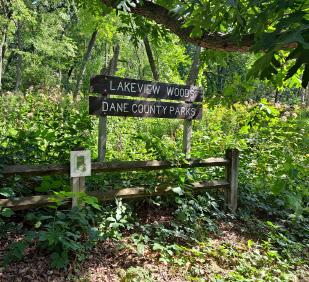
The Corringtons have had luck in the past investigating the former locations of nurses’ dormitories, Thomas said. They made their way to Sanitarium Hill in hopes of finding something similarly enigmatic and paranormal.
“They had [the nurses’ dormitory] set up like a museum, expecting people to come and walk the grounds,” Annie said.
In 2015, Dane County demolished the nurses’ dormitory, and in 2016, Dane County renovated the fountain on the great lawn. Today, all that is left of the 20,000-square-foot historic dormitory is a small brick portion of the veranda that once stood.
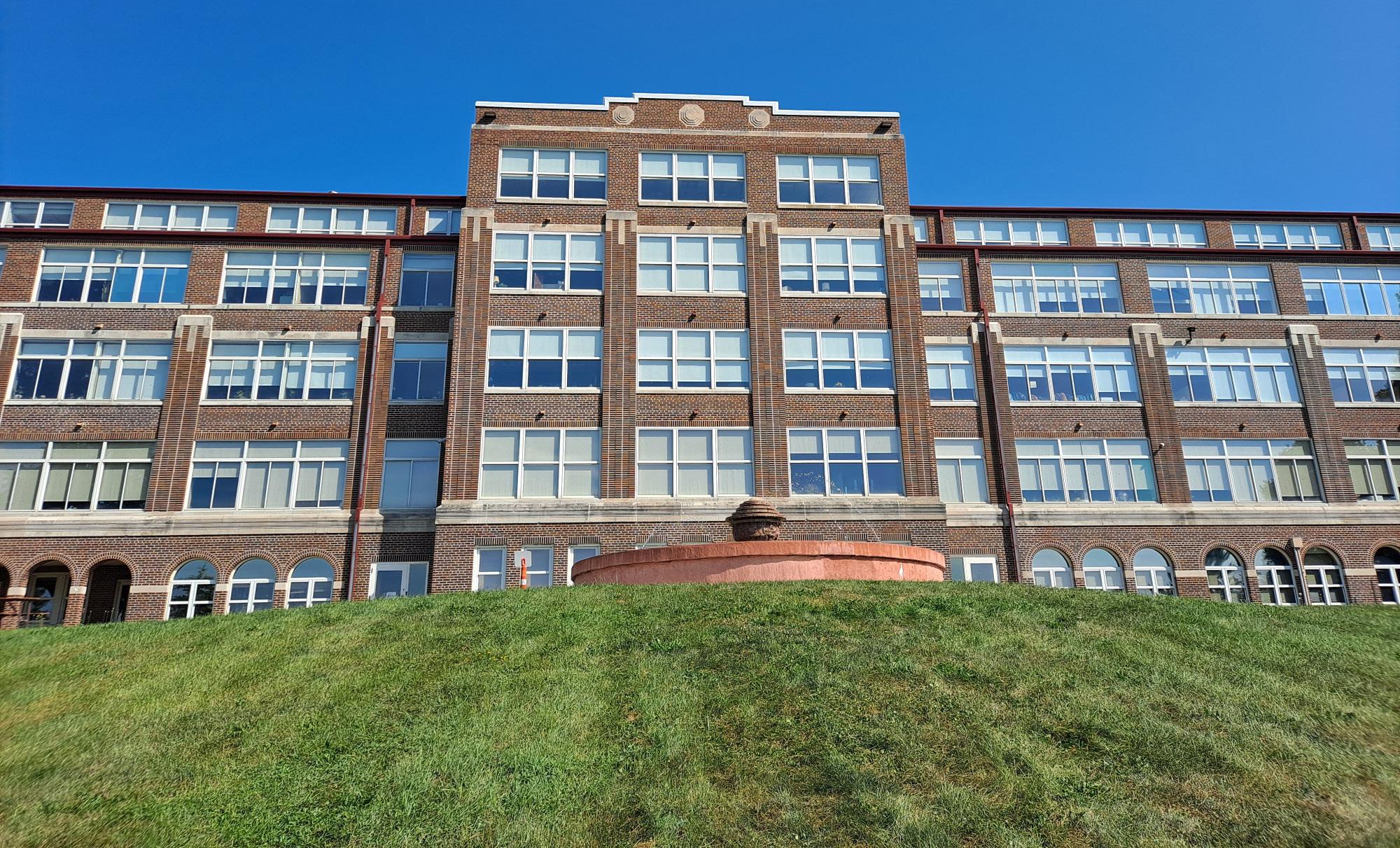
The Corringtons then moved toward the site’s chapel.
“The name on the front of the chapel is Saint John’s Evangelical Lutheran Church 1884,” Thomas said. “From the outside, it looks like a very typical church from the 1880s.”
The site has become popular with paranormal investigators in recent years. In 2014, Youtuber Gregor Wilke vis-
ited the site, posting a video that accrued over 30,000 views where a “ghostlike figure” and “orb” were shown on the site.
As Thomas and Annie navigated the grounds of Sanitarium Hill, they set up K-II meters across the site. K-II meters are a piece of technology popular in the field of ghost hunting that detect electromagnetic fields and measure them with a bright, colored array of LEDs.
“We have about six K-II’s that we use,” Thomas said. “We asked for any spirits in the woods that wanted to communicate with us to move closer to the K-II meter.”
In the Corringtons’ investigation, Lake View Sanitarium’s cemetery became a primary use for this proprietary ghost-hunting technology.
“We walked through the cemetery and took pictures of headstones with strange or unusual carvings on them,” Thomas said. “At that time, we did not receive a response on our K-II meter.”
The sanitarium is associated with many haunted stories — smokestacks where bodies were burned, a large underground tunnel for the dead and stories about crematorium quotas.
The Corringtons’ investigation is not yet finished, they said.
“We would love to go back sometime and investigate the actual building that is in use,” Thomas said. “We feel like the potential is there for a really great paranormal investigation. However, it would have to be an investigation that could be done over the course of a few days.”
Sen. Melissa Agard and Rep. Darrin Madison introduce legislation to legalize recreational marijuana
By Pranav Prakash
STAFF WRITER
Sen. Melissa Agard, D-Madison, and Rep. Darrin Madison, D-Milwaukee, introduced legislation to legalize marijuana use for individuals 21 years or older on Friday.
The bill would allow adults to possess up to five ounces of cannabis and prohibits those who exceed this limit from receiving felony charges. It also substitutes fines in place of criminal penalties for underage users.
Agard emphasized the need for supporting agricultural heritage and addressing racial disparities in Wisconsin in an interview with The Daily Cardinal.
“The most dangerous thing about cannabis is that it is illegal,” Agard said.
Madison echoed Agard’s sentiments and said the bill “lays a solid foundation” for those convicted for non-
violent possession charges.
He cited a report from the American Civil Liberties Union (ACLU) that found that Black people in Wisconsin are more than four times as likely to be charged with a marijuana-related offense than their white counterparts.

Wisconsin Democrats argued legalizing the sale of cannabis would provide the state with needed tax revenue. Agard and Madison’s bill would enforce a 15% tax on the wholesale level and an additional 10% tax on all sales of the substance, with the exception of marijuana sold for medical purposes.
An estimated 60% of this tax revenue will be put toward community reinvestment grants, according to the Wisconsin Examiner.
Legalizing cannabis: a feasible plan or an unrealistic dream?
Wisconsin is one of 12 states where marijuana remains illegal. A number of traditionally Republican-dominated states, like Missouri and Montana, have legalized cannabis for recreational or medical use, according to Reuters. Minnesota, Michigan and Illinois, three states that border Wisconsin, have also legalized cannabis for recreational use.
A recent Marquette University Law School poll found 64% of Wisconsin respondents supported decriminalizing marijuana.
“The views of Republicans in the legislature do not reflect that,” Agard said.
In April, Assembly Speaker Robin Vos, R-Rochester, announced Republicans were working towards a plan to legalize medical cannabis. Vos told the Milwaukee Journal
Sentinel in January that Republican lawmakers would desert support for medical marijuana if Democratic Gov. Tony Evers' budget proposal planned to legalize recreation-
al cannabis.
Earlier in the year, Republicans in the legislature rejected Evers’ proposed budget, which included proposals to legalize marijuana in the state.
news
4 Thursday, September 28, 2023 l dailycardinal.com
COURTESY OF THOMAS AND ANNIE CORRINGTON
LAUREN AGUILA/THE DAILY CARDINAL
COURTESY OF THOMAS AND ANNIE CORRINGTON
Bryce Vine’s ‘Interstate Tour’ enamors the Sylvee
Cinemadison’s festival highlights the creative visions of student filmmakers
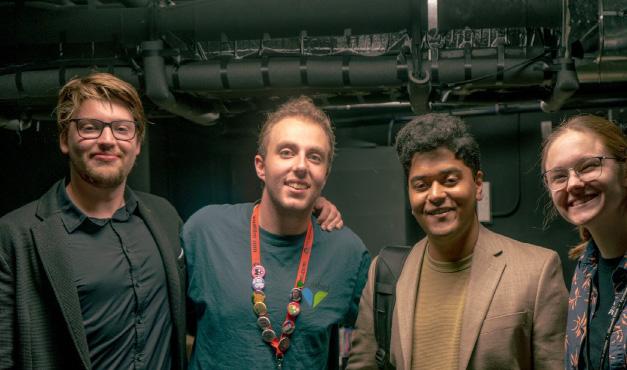 By William Folbe STAFF WRITER
By William Folbe STAFF WRITER
Cinemadison, a University of Wisconsin-Madison film group, put on a student film festival in the Marquee Cinema at Union South last week that was a celebration of what it means to be an artist burdened by the role of being a student.

The festival featured four films: “St. Abby,” directed by DePaul University student Matthew Shariff; “Faces of Void,” directed by Cinemadison president Rohan Pemmasani; “The Helper,” directed by Indu Konduru; and “Fragments,” which was also directed by Pemmasani.
Each film was beautifully crafted, and the attention to detail that each frame received was astonishing. It’s easy to forget that they were made with little to no budget.
Pemmasani during the festival spoke on the importance of the art of filmmaking, especially student and amateur filmmaking.
“There’s no stakes involved at all, so we can truly just say what we want,” Pemmasani said.
That creative freedom and ability to not have to cater to a broad audience allows the director’s whole vision to be reflected in the film.
“It’s a unique voice because we’re so limited with what we have,” Pemmasani added.
Although Pemmasani only filmed in the Madison area — more specifically, his friend’s apartment — “Faces of Void” received critical acclaim at film festivals both domestic and international.
“Faces of Void” is a brilliant story that demonstrates the importance of human connection when you lose sight of morality. It follows a phone scammer making a connection with a potential victim. The film is a wonderful commentary on modern life, exploring not only the absurd nature of scams but also the relevance of relationships formed without face-to-face interaction.
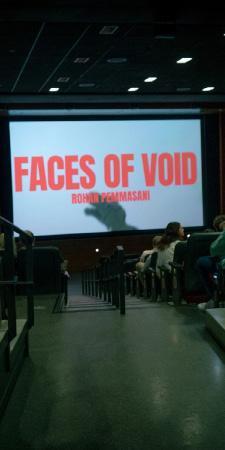
The film festival was not exclusive to UW-Madison students.
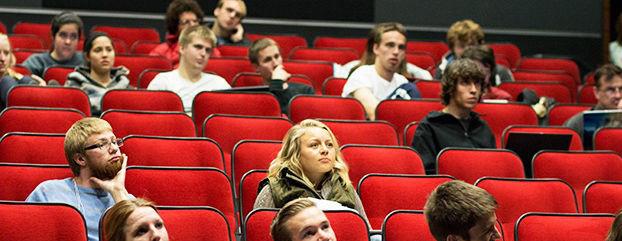
Matthew Shariff is currently a thirdyear student at DePaul University in Chicago. He directed the film “St. Abby,” which takes inspiration
from French new wave and auteur cinema to craft a brilliantly funny tale about a date gone wrong.
Shariff spoke during a postscreening Q&A about the pride he holds in finally seeing his work grace the silver screen. He highlighted the importance of seeing your hard work and effort come to full fruition in an environment surrounded by people who respect the time and effort it takes to craft a piece of art.
As the evening came to a close, Cinemadison board member Alan Zarycki spoke about how tight-knit the filmmaking community is despite the size of their productions.
”It gives me a sense of hope and freedom that whatever I do could maybe translate into something big,“ Zarycki said. “You can literally do anything that your heart desires because, at the end of the day, everybody is by your side.”
Zarycki said this makes him and other student filmmakers optimistic for the future of student filmmaking at UW-Madison.
By Molly Sheenhan STAFF WRITER
Braving the exhaustive rain, an exhilarated crowd of fans flocked to The Sylvee to see rapper and singer Bryce Vine’s long-awaited return to Madison last Thursday.
Madison was just the latest stop on Vine’s genre-bending “Interstate Tour” following the release of his 2023 EP “Serotonin,” and his recent single, “Margot Robbie.”

With a packed house, the curtain rose to reveal the talented Chad Tepper, who previously worked with Vine on a song titled “Run the World.” His short yet well-curated set produced a sound that rocked the crowd into a frenzy. RMR (pronounced ‘rumor’), a Ghana-born artist who gained notoriety after the release of his song “Rascal” in 2020, emerged on stage quickly after Tepper.
Following the exuberant performances from crowdfavorite openers, Vine took the floor with “Where the Wild Things Are,” a track off his 2014 EP titled “Lazy Fair.” A very talented live band backed the New York Cityand California-raised artist, including a drummer and a DJ/trumpeter by the name of Lvcky Dave.
When Vine enthusiastically addressed the crowd between “Nostalgia“ and “Miss You a Little,” a feeling of togetherness descended upon the crowd. Everyone, from oldtimers who had been to Vine’s last Madison outing to those who were newer to his music, were brought together in one common experience.
“I love bringing people together. It’s my favorite thing in the world. This is my favorite place to be,” he told the crowd.
It’s been four years since Vine last stepped foot in Madison, albeit on the stage of The Majestic Theatre. Yet he seemed right at home at the forefront of The Sylvee.
“We have so much to catch up on,” he said. “There’s been so many changes in our lives since I last saw you. It gets weird, but I hope we all share this together. A cleansing of the soul, if you will.
Vine’s carefully selected and highly personal setlist invited the crowd to experience a range of emotions from love to heartbreak. With an amalgamation of fan favorites such as “Drew Barrymore,” “Sour Patch Kids” and a cover of Kid Cudi’s “Pursuit of Happiness” to lesser-known songs like “Glamorama” and “Nobody,” Vine emulated a down-to-earth performance that truly meant something to his fans.
While addressing the crowd, Vine asked fans to turn on their flashlights and sway their arms to the beat of the music. In doing so, it felt as if the crowd had transformed from spectators into a true part of the show — it was an intimate moment shared between the performers and the audience.
Lvcky Dave’s feature as a trumpeter only added to the highly beat-driven phrases that heightened the bassheavy sound ringing throughout The Sylvee. Vine’s mix of Third Eye Blind- and J-Coleinspired sounds coupled with his intelligent lyricism captured what it means to live in the moment and to share such an experience with those around us.
The serotonin-fueled crowd left the Sylvee after Vine’s stage exit, brimming with his infectious energetic demeanor.
arts
dailycardinal.com
September 28, 2023 l 5
COURTESY ROHAN PEMMASANI
Thursday,
COURTESY ROHAN PEMMASANI
COURTESY ROHAN PEMMASANI
THOMAS YONASH/THE DAILY CARDINAL
LOUISE GILBERTSON/THE DAILY CARDINAL
Science sit down with climatologist Steve Vavrus
By Paige Stevenson STAFF WRITER
Wisconsin’s new climatologist is excited about the possibilities his position holds in terms of helping the community and educating students. He’s particularly eager to connect with the next generation on his journey to help others understand the state’s unique climate issues.
Steve Vavrus joined the Wisconsin State Climatology Office in 2023 as its new director and the state’s climatologist. Vavrus told The Daily Cardinal he plans to implement his strategy of the “Three I’s” — information, interpretation and investigation — into Wisconsin climate services.
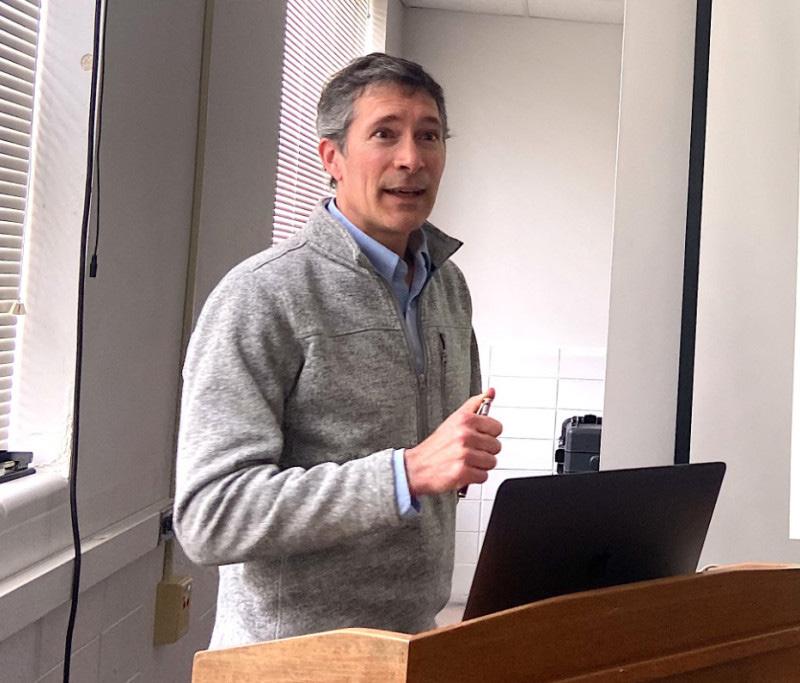
For investigation, Vavrus works with observational data and computer climate models to help farmers use technology to better understand how Wisconsin’s changing climate affects their livelihood.
“Farmers depend heavily on weather information, and they’re at the mercy of a lot of weather variations,” Vavrus told the Cardinal.
This is one reason why the technology he is working with in the new Mesonet project is so impactful, he said. Mesonet involves a coordinated weather station in every county to deliver a variety of climate facts to farmers. Mesonet is funded through grants from the Wisconsin Alumni Research Foundation
as well as the Wisconsin Rural Partnership from the U.S Department of Agriculture.
It’s efficient and reliable, Vavrus said, ensuring all the same standards and tools are being used to monitor climate issues like soil moisture, temperature and wind. Plus, this information is easy to access for farmers because it is stored in technology they’re already using — apps.
As far as information goes, the State Climatology Office has a variety of resources and data on Wisconsin’s climate.
However, Vavrus believes the office “can help users separate what’s useful information and what’s actually not very credible.”
He plans to tackle this issue by giving citizens a more reliable interpretation of how their state is affected by climate change.
Even though Vavrus is optimistic about the good his position can bring to the state, he is still aware of the grave effects climate change has on Wisconsin and its implications for students.
“We have a pretty good sense that we’re going to get warmer, and overall, we’re probably going to get wetter in Wisconsin,” he said. “But what are the surprises going to be?”
The issue for students isn’t that they aren’t less resilient to the climate changes, Vavrus said, but that they’re more
How climate change is affecting fall leaf colors
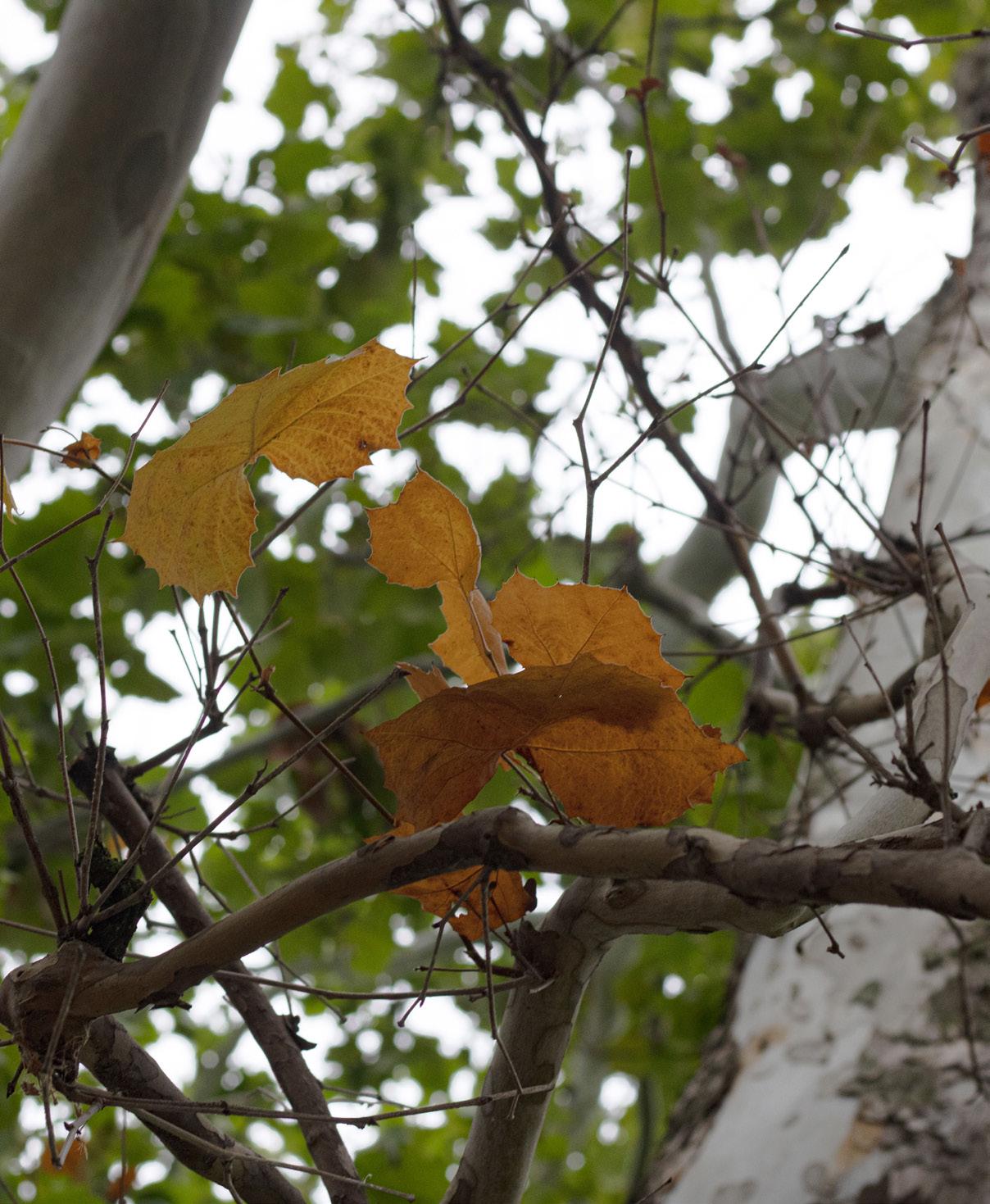
exposed to them.
“Young people in general are more concerned about climate change than older people — all of the surveys show this — and that’s really encouraging. They should be, frankly, because people who are younger are going to experience more climate change,” Vavrus acknowledges.
But interestingly enough, his advice encourages students to think about how their major affects climate change.
“Climate is interdisciplinary,” Vavrus said, stressing the idea that STEM majors aren’t the only fields climate change affects. “Students can come in from all sorts of different angles to get into the field of climate because it is welcoming of all different perspectives.”
Considering the unique ways different careers impact our climate and having students cognizant of intersections gets them to think more creatively about how to solve climate change, he added.
Vavrus’s excitement for his position and the optimism he has for how students are becoming involved with the climate is inspiring. As he acknowledged, students are already very concerned about their changing climate, and having someone equally as uplifting and passionate as the state’s climatologist is an asset worth taking note of.
By Sydney Spiegel STAFF WRITER
As fall approaches Madison, many of us look forward to a satisfying walk through a fallen rainbow of leaves in the crisp autumn air.
But have you ever wondered what causes this aesthetic experience?
According to the National Environmental Education Foundation (NEEF), there are three main factors that impact leaf color: leaf pigments, lengths of nights and weather.
Chlorophyll, the main pigment in leaves, produces their green color. However, at lower temperatures, chlorophyll production is suppressed. According to the National Health Institute, this results in a loss of color — causing the beautiful leaves of the fall. The orange and yellow pigments we see as a result are what scientists like to call the leaf’s “winter coat” — chemicals that are expressed to help trees fight off the cold and collect nutrients before winter arrives.
However, NEEF reports that scientists believe leaf colors in the fall may become duller as climate change progresses and temperatures increase. A New England-based research study from 2013 found higher temperatures have delayed color change in leaves. This delay, in tandem with an earlier start to spring, prolongs the active growth season of plants.
This could become an issue since a shorter fall season may result in trees being unable to collect enough sugar before the winter months arrive.
Rebecca Forkner, a scientist at George Mason University, told National Geographic in 2022
this could impact how trees grow — or, more particularly, their inability to grow.
It’s easy to take for granted the trees that keep us alive by producing the air we breathe. However, unsuccessful growth may result in a decrease of vital oxygen production and force us to notice one of nature’s most alluring gifts to us.
Additionally, impaired forest growth will lead to a cycle of environmental devastation considering trees absorb around 30% of all carbon dioxide emissions, a main gas contributor to climate change, a 2021 Boston University study found.
These changes in tree growth and leaf color bode other serious impacts on our society — notably, the economy. National Geographic estimates $30 billion in revenue is generated annually from tourism in states like Maine and North Carolina as travelers visit specifically to see these states’ colorful fall leaves.
Without the vibrant hues of autumn, these economic trends show chlorophyll won’t be the only green we lose.
While there is still more research to be done on the effects of delayed color changes in leaves, it is conclusive that this is a sign of environmental danger. The actions we take now to protect our environment and combat climate change are imperative to the longevity and prosperity of our future.
Even if we are fortunate to see the wonderful fall colors this autumn, we must continue our efforts to educate and act on climate change to ensure nature’s beauty is sustained for generations to come.
science
Wisconsin’snewclimatologistdiscusseshisplans forthepositionaswellashowstudentsfitintothe vision.
COURTESY UW-MADISON 6 • Thursday, September 28, 2023 dailycardinal.com
MADELYN ANDERSON/THE DAILY CARDINAL
What about ethics?
By Lauren Stoneman STAFF WRITER
Each time I go to an information session or a job fair on campus, I find myself asking the same question:
What about ethics? Do ethicists have a role to play at your company?
The horrific mundanity of sexual violence
UW’sresponsetorecentsexualassaultdownplaysasystemicstudentsafetyissue.
By Sreejita Patra STAFF WRITER
Content warning: This story contains information about sexual assault.
A group of freshmen sit on the lawn of Gordon Hall, talking about the news alert that went off about a student who was sexually assaulted a few days ago.
One of them is criticizing the chancellor’s description of Madison as “generally quite a safe city”; the other is saying it is mostly right. After all, she had heard that girl was out at 3 a.m. off campus, and so the whole thing was kind of her fault. They engage in a backand-forth, but by and by, the conversation is forgotten in less than a minute.
The University of WisconsinMadison operates under a much wider context of rape culture and victim blaming in a country and world where droves of exposés regarding sexual abuse within religious, cultural and political institutions beget very little actual change in its rampancy.
The university’s own statistics remain the same as they were, even since the rise of the #MeToo movement. Roughly 27% of female students reported being sexually assaulted during their time at UW-Madison in a 2015 campus survey, and as of 2022, that rate has decreased by less than 1%.
One would assume with such violence being embedded in the very fabric of this institution that authoritative responses to the recent incident would be clear-cut, and communal ones steeped in sympathy.
To some extent, the latter is true. Rape Crisis Center’s goFundMe for the survivor’s medical expenses and healing has reached $61,000.
But when the forefront response to a student being beaten into a coma is to state that her situation is some sort
of anomaly to campus living, it becomes crucial for us as students to look back and understand these statistics of abuse to be a result of Madison-specific institutional enabling.
In 2018, a man named Alec Cook was discovered to have a notebook detailing dozens of violent sexual assaults against female students. In 2019, a 19-year-old student was punched, groped and dragged through Langdon Street at night. And last year, a student woke up to being sexually assaulted by a man who had broken into the James apartment complex right off campus.
According to a 2019 sexual assault climate survey, 31% of women and 21% of men on the UW-Madison campus were harassed to the point of it interfering with their daily life.
Students are told to use BadgerSafe while walking at night or directed to the Rape Crisis Center should the inevitable occur. But each time a new incident takes place, those in charge continue insisting Madison is a generally safe city and perpetuating the myth of sexual violence as a rarity rather than a rule.
Truthfully speaking, the community moves on after each assault takes place. Us women, we shake our heads, walk in groups late at night and lock our doors when we can. We warn our friends not to wear that shirt, not to go there at that time, not to hang out with certain guys. Everyone is afraid to end up like that girl.
This whole exhausted performance is easier than acknowledging the truth. Sexual abuse on this campus has taken place in every aspect of life, despite the pageantry of violence prevention modules or police alert apps or continuous talk of “resources” and “support.”
University leadership cannot be bothered to concentrate its funding on, say, expanding the SafeWalk program operations to
any time of night or increasing efficiency of therapists, funds and procedure for the 87% of sexual assault victims who never reported their crime.
Sexual abuse upheaves a person’s core sense of self. Beyond the greatness of the monetary and physical expenses one pays to recover from such depraved actions, survivors are forced to reckon with our own bodies and lifeblood as a source of constant danger: things as simple as clothes, conversation and acts of affection are a barrage of fresh pain.
Yet, despite the sheer magnitude of the impact sexual assault has on a person’s life and the extent to which its effects can be found in the general populace, we take it for granted that this is something that has always existed and must continue to. We shrug our shoulders, offer half-hearted platitudes of sympathy to victims and go home to measure all the ways in which what happened to them would never happen to us.
While they cannot be reasonably expected to immediately eliminate a threat of violence which percolates to every corner of the world, this university owes its members security, regardless of whether or not they live on campus or commute into the city. It is our right as students or parents, as faculty or alumni, to be confident that we and our loved ones are safe.
If not to uphold its position as a premier college campus for students in the United States, UW-Madison owes dramatic action to all the survivors who have been made within its walls. Our leaders are morally responsible for the heavy stains of history — even when they are neither its beginning nor end.
Sreejita Patra is a freshman who is currently undeclared. Do you agree that UW-Madison needs to take sexual harassment and safety more seriously? Send all comments to opinion@dailycardinal.com
Usually, the presenter will respond with a diplomatic “no” — something to the effect of: “While it isn’t a department here, per se, the ethical implications of what we do are always in the back of our minds.”
Other times, I’ll be told that ethics is really more of a subcategory of the legal or compliance departments. In other cases still, the “no” won’t be diplomatic at all.
Ultimately, whether the “no” is said proudly or muttered under one’s breath, it’s not a “no” that should be tolerated anymore.
Ethics has never been a priority for emerging industries. Talking about the exciting developments of artificial intelligence or the potentials of space explorations is, to put it simply, much more fun than policing innovation.
But the problems created by emerging industries are real and unavoidable. A healthcare algorithm used to determine follow-up care was found to disproportionately favor its white patients. A political consulting firm manipulated voters by mining the data of 50 million Facebook users. A woman was killed by a selfdriving car.
Suddenly, talking about innovation doesn’t feel so “fun.”
It’s in all of these cases — cases where innovation concerns humanity — where ethicists need to be seen as essential.
“The greater the threat to a minimally decent life… the higher the need for ethicists,” said Reid Blackman, a technical ethics consultant. “There are difficult ethical decisions to make, and there are decisions being made in highly complex environments wherein it might be difficult to see the ethical implications. Ethicists are good at figuring those things out.”
The reality, though, is that when it comes to fields like tech, there are very few ethicists in decision-making roles. In part, this has to do with the fact that we don’t really know what “practical ethics” looks like.
It can’t be written off as an issue of compliance, and it can’t be regarded as just an aspect of law — determining what is legal is an entirely different question from determining what is just. It might be legal to cheat on your spouse, for instance, but it certainly isn’t moral. If companies
believe that they are being appropriately policed by the legal department and nothing else, they’re going to continue to run into ethical issues.
If it isn’t law and it is compliance, though, then what is practical ethics? To some, it might seem like an oxymoron — there’s nothing “practical” about a class of college freshman debating the ethics of the trolley problem for the umpteenth time, and for the umpteenth time, coming to no conclusion. While that may be true, the study of philosophy nonetheless brings out skills that are uniquely and decisively practical.
“Philosophers, all else equal, are trained to analyze and breakdown and critique at a deeper level than any other discipline,” Blackman said.
In fields where the potential limits and pitfalls of an idea are still being discovered, it is essential to have someone like that in your corner — someone who is thinking about every implication and who can work with you at every step.
There’s still an issue, though. It’s not enough for an ethicist to just stand over the shoulders of a software engineer or a data scientist and make suggestions. Ethics is perceived as a soft, subjective discipline that puts parameters on creativity, so it’s something developers are eager to ignore.
Practical ethicists need to be more than “commenters.” They need to be a part of an institutional system of checks and balances. To create it, we can reference the one practical discipline that is properly engaging ethicists: medicine.
Bioethicists have put ethics “into process in the right sort of way,” Blackman said. “There are requirements about when you have to see an institutional review board (IRB), there are standards you have to meet for the IRB to approve you, and it’s an everyday operation to get approval before you start your experiment.”
Of course, when the experiment in question involves the immediate life or death of a human being, as is often the case with medical ethics, these ethical review processes don’t feel trivial at all. We are a long way from respecting ethics to this same degree in industries like tech.
It’s time we realize that these other industries are every bit as life-and-death and start getting ethicists in on the conversation.
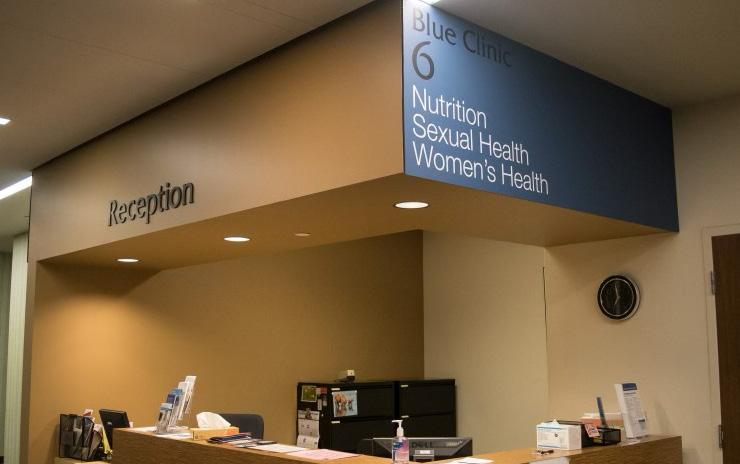
LaurenStonemanisajunior studying data science. Do you agree companies would benefitfrombringingonethicists?
Send all comments to opinion@dailycardinal.com
opinion BRANDON
dailycardinal.com Thursday, September 28, 2023 l 7
MOE/THE DAILY CARDINAL
Whenitcomestoemergingindustries,it’stimetogetethicistsinonthe conversation.
sports 8 • Thursday, September 28, 2023 dailycardinal.com
Transfer Temi Thomas-Ailara impresses in her start as a Badger
By Alison Browne STAFF WRITER
Wisconsin — favored in the Big Ten Volleyball Preseason Poll — is on the road to securing their fifth consecutive championship this fall. With transfer Temi Thomas-Ailara on the court, their chances are even better.

TAYLOR WOLFRAM/THE DAILY CARDINAL
stands with a 0.197 hitting percentage.
Thomas-Ailara tried out multiple sports as a child. By the time she joined her first club volleyball team at ten years old, she was hooked. After years of training and dedication, she committed to Northwestern University at the end of her sophomore year of high school and went on to compete as a Wildcat for four years.
Thomas-Ailara found herself in the recruitment process once again after joining the transfer portal last winter. She ultimately chose Wisconsin because of the Badgers’ high-caliber program and the university’s opportunities to continue pursuing a career in healthcare.
Coming to the team with a decorated athletic resume, Thomas-Ailara’s success is no surprise. She led the Big Ten with 502 kills in the 2022 season, was a first-team All-Big Ten Conference selection three times and a second-team AVCA All-American in 2022. She set Northwestern’s record for kills per set at 4.04 during her time as a Wildcat.
The Badgers reigned victorious each of the five times Thomas-Ailara battled Wisconsin during her time at Northwestern. On Sept. 24, the time came for her to be on the other side of the matchup.
Competing in a highly-anticipated game against her former teammates, Thomas-Ailara ultimately clinched a victory in the Badgers Big Ten opener with a service ace in the third set.
By Grace Cannizzo STAFF WRITER
The Big Ten Conference released the 2023-24 men’s basketball conference league schedule on Tuesday. The Wisconsin Badgers will play 20 Big Ten games in addition to their 12 nonconference games, beginning on Dec. 5 when the Badgers travel to play against No. 5 Michigan State. Wisconsin has a difficult schedule ahead of them as they will be playing six teams ranked among NCAA’s top 25 teams.
In addition to Michigan State, ranked conference opponents include No. 23 Illinois and No. 2 Purdue, who won last season’s Big Ten regular-season title, Big Ten Tournament and a No. 1 seed in the 2023 NCAA Tournament. The Badgers will face the Boilermakers twice and Illinois once.
Outside of conference games, Wisconsin will face No. 14 Tennessee, No. 6 Marquette and No. 17 Arizona.
Head coach Greg Gard, who was listed in the top 25 coaches by the College Basketball Report, will enter his ninth season with the Badgers this year. His team missed the NCAA tournament last season, finishing the season 20-15 and tying for 11th place in Big Ten standings.
However, the Badgers should not be underestimated. They have high expectations for this year’s season as their roster consists of both returning star players and eager, talented freshmen rookies who look to make their mark on the team.
Returning sophomore Connor Essegian is playing guard for the Badgers. Essegian played in all
35 games last season and started the final 19. He averaged an impressive 11.7 points per game and became the eighth Badger to earn Big Ten All-Freshman Team honors and just the fifth in over the last 25 years to average double figures in their freshman season.
Junior guard Chucky Hepburn also returns to the Badgers after being named an All-Big Ten Freshman in his first season and an honorable mention league honoree as a sophomore. Hepburn averaged 2.8 assists per game last season, and his current 1.98 career assist-to-turnover ratio would rank as the seventhbest mark in school history.
The Badgers will have four seniors on their roster this year, including fifth-year senior forward Tyler Wahl. Wahl, who averaged 11.3 points per game last season, is a player who should be watched out for. He was named one of 20 candidates to the 2023 Julius Erving Award watch list last year, and he has great potential to lead the team with his physicality and mental grit due to his veteran experience.
Another senior playing for the Badgers is Steven Crowl, who averaged 12.1 points per game and more than 20 points in five games last season. He had a notable career-high 36 points in Wisconsin’s first-round NIT win over Bradley. Additionally, senior transfer Max Klesmit scored in double figures for Wisconsin in seven of the last 12 games, including 15-plus points in four of the last eight games.
Returning senior forward Carter Gilmore, who played in all 35 games last season, will look to make a difference on this year’s
team. Gilmore scored his careerhigh eight points at Iowa with four field goals.
Several skilled rookies are also joining the Badgers this season.. Freshman John Blackwell was recognized as the 26th-best combo guard in the nation and the third-best prospect in the state of Michigan. Three-star recruit Nolan Winter was the No. 2 basketball recruit in the state of Minnesota, according to 247 Sports. Gus Yalden, another freshman, ranks as a top-100 recruit in the country.
Greg Gard also discussed walk-on Jack Janicki, another highly-rated incoming freshman.
“His hustle, grit and championship mentality will remind Badger fans of many former players that have helped our program sustain a high level of success,” Gard wrote, in discussing the 2023 signing class. “He has always played the game with an underdog mentality and has earned everything that has come his way.”
Taking on such a difficult schedule will be an arduous feat for the Badgers, but it is certainly one that they can handle. Essegian, Hepburn, Crowl, Wahl, Klesmit and Gilmore will be guiding the new additions to the team.
The Badgers have incredible potential this season. Despite last year’s difficult season, this year’s team is promising for not only Wisconsin’s 2023-24 season but also the team’s future.
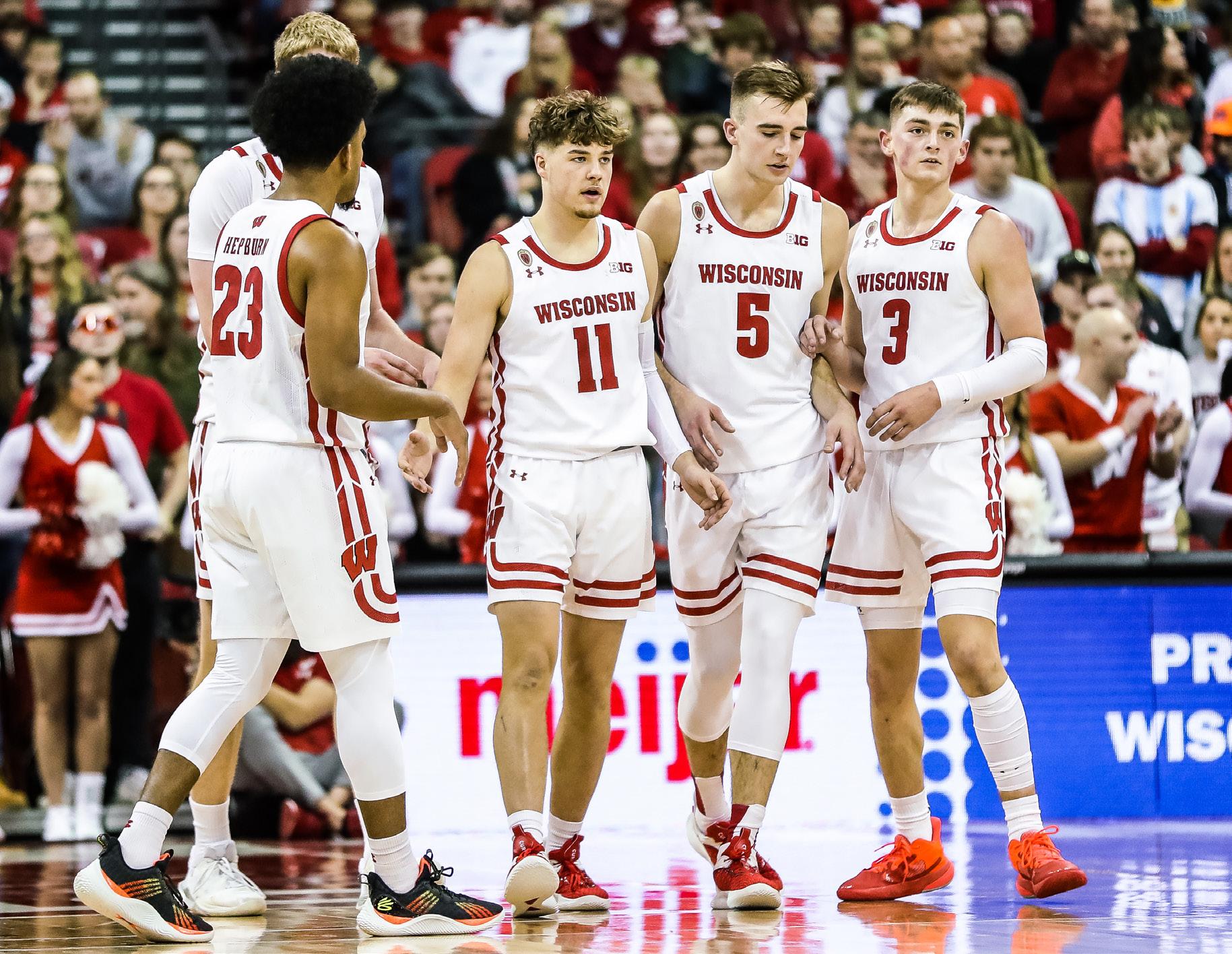
The Badgers will face off against Michigan State on Dec. 5th at the Breslin Center in their first conference matchup of the season.
After a phenomenal fouryear career at Northwestern, the 6-foot-2 outside hitter hopes to pick up her streak of offensive domination exactly where she left off. Players and spectators alike expect great things from her this season as she spends her last year of collegiate eligibility as a Badger.
Thomas-Ailara — selected for the Preseason All-Big Ten team — has proven to be a force for Wisconsin, playing a key role in their winning streak. In the first matchup against Baylor on Aug. 25, she totaled 12 kills, resulting in a 0.500 hitting percentage, tying her career-high and setting the tone for an exciting season. Since then, Thomas-Ailara has racked up 80 kills, nine service aces and 42 digs. She currently
Beyond the depth of skill and experience she adds to the team, Thomas-Ailara has already embraced the values of UW-Madison during her transition.
“Being a Badger means that you’re actively searching for ways to improve and bringing others with you,” she said.
Thomas-Ailara’s positivity and unwavering support of her teammates are evident on and off the court and are sure to aid her in her pursuit of individual and collective growth.
With the season well underway, the team has established a commanding presence.
Thomas-Ailara will continue to be a player to watch as she adjusts to her new environment and Wisconsin continues the journey to the NCAA tournament in late November.
Badgers men’s basketball conference schedule: What it means for the team MEGHAN SPIRITO/THE DAILY CARDINAL













 By William Folbe STAFF WRITER
By William Folbe STAFF WRITER








